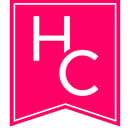While driving home from CVS one evening, it occurred to me that I had forgotten to buy tampons. Annoyed, I immediately turned my car around to go back. All the while, I was thinking that I would have gladly forgotten to buy my new toothbrush over my feminine hygiene products and gone a day without brushing my teeth instead of a day without tampons. I wasn’t sure if that was a disgusting opinion to have or not, so I decided to ask other women what they thought. As it turns out, 49 out of the 60 women I asked (about 82%) would choose to live their entire lives without toothbrushes and toothpaste instead of without tampons or pads.
Regardless, the majority of US states consider tampons and other feminine hygiene products to be, “luxury items,” and subject them to sales taxes. Many states consider condoms to be a health necessity, and Wisconsin considers Viagra, a pill to treat erectile dysfunction, a health necessity as well. These, “health necessities” are tax exempt, but tampons and pads are not. These states should ask themselves, would 82% of men give up brushing their teeth forever so they could keep their condoms and Viagra?
Connecticut has voted to remove its tampon tax beginning in 2018, but we still have a long way to go in terms of destigmatizing the menstrual cycle and removing gender bias from regular shopping trips.
Last year in New York City, Mayor Bill de Blasio signed a bill that made feminine hygiene products free for women in shelters, jails and schools. Voting on the bill was unanimous, and it was proposed by city councilwoman Julissa Ferreras-Copeland, who said, “[Feminine hygiene products] are as necessary as toilet paper.” You can see her below with one of the free dispensers in NYC as a result of the new law.
New York is the first city in the country to pass a bill like this that makes feminine hygiene products so readily available to women and girls. In fact, 37 states are still taxing tampons and pads as luxury items even though period related issues are not luxurious problems to have and can even keep women and girls from going to school or work in some circumstances.
Let’s not forget that even without sales tax, tampons and pads are still expensive for what they are (*ahem* a health necessity). If you compare the costs women have to front for their feminine hygiene versus what people pay for regular dental hygiene, you’ll find that having a vagina is far more expensive than having teeth. The cost of toothbrushes and toothpaste for the course of an entire person’s life (78 years, according to the national average) is $2,755. You can compare this to the average amount a woman will spend on her period in her lifetime, which comes to around $1,773 for tampons and pads only (if you included pain medications, new underwear, and other period costs it actually comes closer to $18,000).
This is all well and good, but another thing that we need to keep in mind is that if you totaled up all the days a woman needs to use feminine hygiene products, it amounts to about 6.25 years’ time. So if you wanted to compare the real cost of feminine hygiene products to dental products (toothbrushes and toothpaste) you would have $1,773 for tampons and pads while 6.25 years’ worth of toothbrushes and toothpaste would only cost $218.75. This is only talking about a small portion of what having a monthly period will cost a woman over her life time (see chart above). However, according to an article from USA Today, it is estimated that in New York State, the elimination of the tampon tax will save consumers $10 million a year. It is unacceptable that we still have to pay this much extra for a product that 82% of women have deemed more important to them than their toothbrushes.
Let’s make 2017 the year that we do better for women. We didn’t choose the period life, so please don’t tax us for it.

